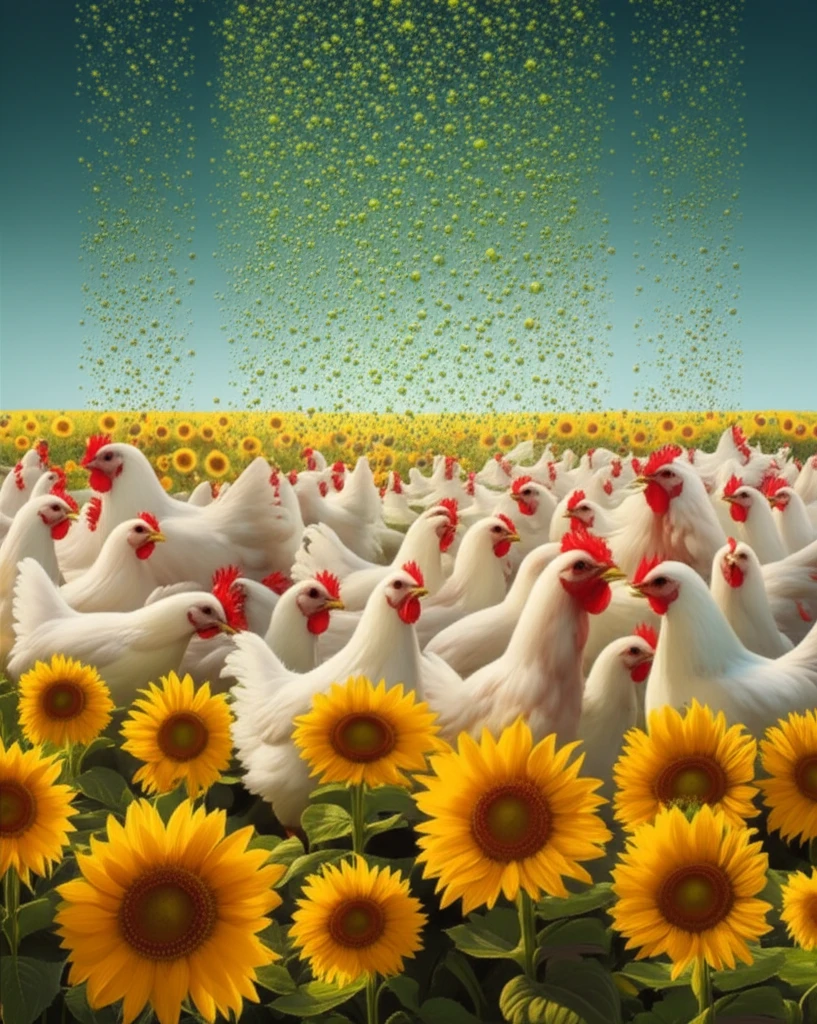
Unlock Broiler Growth: The Sunflower Meal and Enzyme Secret
"Can sunflower meal in broiler diets actually boost performance with a little help from enzymes? Here's the surprising science."
For poultry farmers, optimizing broiler diets is a never-ending quest. Conventional wisdom often leans on corn and soybean meal as the go-to energy and protein sources. But what if there's a readily available, cost-effective alternative? Enter sunflower meal, a byproduct of the oil industry, boasting a respectable 33% crude protein. Could this be the key to unlocking better broiler performance?
Sunflower meal isn't without its challenges. Its lower lysine and higher fiber content compared to soybean meal can limit its usability. This is where enzyme supplementation comes into play. Enzymes, particularly NSPase, are known to enhance broiler performance by improving feed intake, conversion, and weight gain. But how does this work with sunflower meal, and what are the real benefits for your flock?
A recent study published in the Brazilian Journal of Poultry Science dives deep into this topic. Researchers investigated the impact of different sunflower meal inclusion levels in broiler diets, with and without enzyme supplementation. The results? Quite revealing. Let’s explore how sunflower meal and enzymes could revolutionize your approach to broiler nutrition.
How Sunflower Meal and Enzymes Work Together for Broiler Growth

The study utilized 1200 Ross 308 broilers in a controlled experiment. The birds were divided into groups fed diets with varying levels of sunflower meal (6% and 8% in the grower phase, 10% and 16% in the finisher phase), with and without enzyme supplementation (cellulase, β-glucanase, and xylanase). The researchers meticulously tracked performance metrics, intestinal function, and carcass traits.
- Grower Phase Boost: Enzyme supplementation significantly improved weight gain and feed conversion ratio during the grower phase.
- Finisher Phase Fine-Tuning: Sunflower meal inclusion at higher levels (10% and 16%) in the finisher phase negatively impacted weight gain unless enzymes were added.
- Gut Health Matters: Sunflower meal increased ileal viscosity, but enzyme supplementation mitigated this effect, suggesting improved nutrient absorption.
- Enzyme Impact: Sunflower meal reduced maltase activity, an enzyme crucial for breaking down sugars, but enzyme supplementation didn't counteract this reduction directly.
The Future of Broiler Diets
The research underscores the importance of tailoring broiler diets to specific growth phases and carefully considering the interplay between feed ingredients and enzyme supplementation. As the poultry industry seeks sustainable and cost-effective alternatives, sunflower meal, when strategically combined with enzymes, presents a promising avenue for enhancing broiler performance and optimizing production efficiency. Keep experimenting and watching the latest research, and you'll be well on your way to nurturing a healthier, more productive flock.
